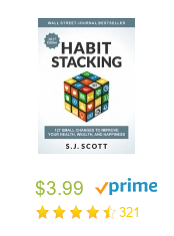
7 Answers To Mortgage Payment Questions You Might Have

A Useful Guide On Mortgage Payments
Several crucial issues need to be considered when it comes to a mortgage. Not only must you choose the most suitable one for your financial needs, but you must also ensure that you keep proper records of mortgage interest payments, loan payments, as well as property tax payments. Although doing all this paperwork sounds quite tedious, it is an essential job. The details below provide some tips regarding how to be more efficient in keeping tabs of where your money is going, plus there are a few helpful details about how to keep better financial records.

1Is Paperwork Necessary?
A lot of people today enjoy the benefits of modern technology, but the uses of modern tools have limits. Even though your new gadgets can help you keep track of your payments, it's still crucial to have the documents with you. This is so you can readily present these in case the IRS comes to audit you or if you are disputing a certain money-related issue.
Moreover, as a new homeowner, it's possible for you to enjoy some deductions. Several deductions only happen yearly, while others can be kept for long-term savings. The most common types of annual deductions are mortgage interest payments and property taxes. In general, the billing is a part of the monthly mortgage fees that you pay.

2How Do You Efficiently Manage Payments?
You will have an easier time handling payments when you do pay twenty percent as downpayment when purchasing a home. If the said payment is part of the mortgage payment, your statement at the end of the year will show you how much went to your taxes. On the other hand, if you make direct payments, you can opt to pay semi-annually, around April and December. It is perfectly fine to pay both during their due dates.
These days, there are software programs that can help you keep track of payment due dates. All you have to do is choose the right settings so that you will be able to pay your dues on time and avoid charges for being late. As for property taxes, itemize these as the amount can be deducted from state and federal taxes.

3Do Personal Payments Need To Be Tracked?
In case you usually make your payments in person, always keep a photocopy of the receipt and tax bill for documentation. By doing so, you can readily produce evidence of payments in case you are audited. Even a canceled check can be used because it will give evidence to the date of specific payment and it will itemize what it was for. As for the tax deduction, you can only utilize this on the same year that you made the payment.
Also, the interest on your primary property can be deducted from your taxes. So, always check your financial statements for money that went to interest and check the principal of the prior year. You will usually receive this at the year's end. Remember, you cannot come up with the total deduction amount by simply adding mortgage loan repayments for the past twelve consecutive months.

4What Is Included In A Mortgage Payment?
In most cases, the mortgage payment includes the principal amount and interest. The principal amount is not classified as a deductible expense, but the interest payment could be deductible. So, always photocopy the checks that you send to your lender so that you'll have your own copies of payments made.
It is possible for the IRS to admit the financial statements from your mortgage company as evidence regarding interest payments made, but you should still keep the checks so that you'll have a backup in case your payments have not been recorded. If you opted for your payments to be deducted automatically, always keep the documents or financial statements that give proof regarding when a payment was made and what it was for.

5What Is Alternative Minimum Tax?
In case you receive a bigger income, you should check if you are entitled to the Alternative Minimum Tax. If you do, your accountant or the software that you use for tax preparation will notify you. You could observe that your deductions have been lessened. If you currently reside in your own property, you can't usually deduct your home's operating costs, except if you work at home or have a home office, specifically.
In other words, a property that is operated like a business, such as an investment that's been leased out, can be taken out as a deduction. The tax code is quite complicated, so it's best to clarify things with your accountant first, particularly if you are renting out your entire or part of your property. Moreover, when you refinance or buy a certain percentage of the loan you pay to obtain, the mortgage can be deducted during the same year of purchase.

6What Are The Regulations For Points?
When getting a loan, you could state that your purpose for the loan is to buy or improve your primary property, and the collateral for the mortgage could be the home itself. But take note that the standard level of points in your region cannot be exceeded. It is always prudent to keep all documents regarding your escrow and loan payments when you buy or refinance since these could be used when computing for possible tax deductions. However, remember that you may not be able to deduct all your points on the same year, as what your accountant or financial consultant may inform you, yet it's highly likely that you could spread the deductions throughout your loan's term. Let's say that you'll be making 360 payments on your mortgage, which means that you could divide your points equally by 360 and then subtract a sum of twelve month's worth annually.

7How To Compute For Capital Gains Tax?
If you've sold your home, it's very likely that you also received a high profit from it, especially when the real estate market is strong and stable. In case there is an increase, you could shoulder the capital gains tax. The main issue that you need to clarify then is regarding how significant the amount is.
If you aren't aware of this, you also won't know the total amount of taxes that you have to pay. In general, the capital gain is computed by combining the adjusted tax basis of a particular property and the sales price, and then the cost or the amount spent on the sale is subtracted. Since the adjusted tax basis can be very complicated, it's best to consult a tax expert.
Now you know that there are several financial aspects related to your mortgage. Thus, it helps to keep a good record and to have all of your financial documents and paperwork so that you can readily present them in case the IRS audits you or if you need evidence to prove that you sent in past payments. Keep in mind that you need to pay taxes on time because not doing so can spell trouble for you.
About Author
John Quintana
GET THE FREE MAGAZINE DELIVERED STRAIGHT TO YOU:









































